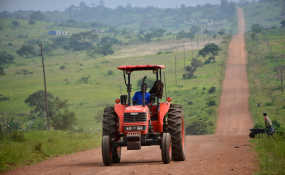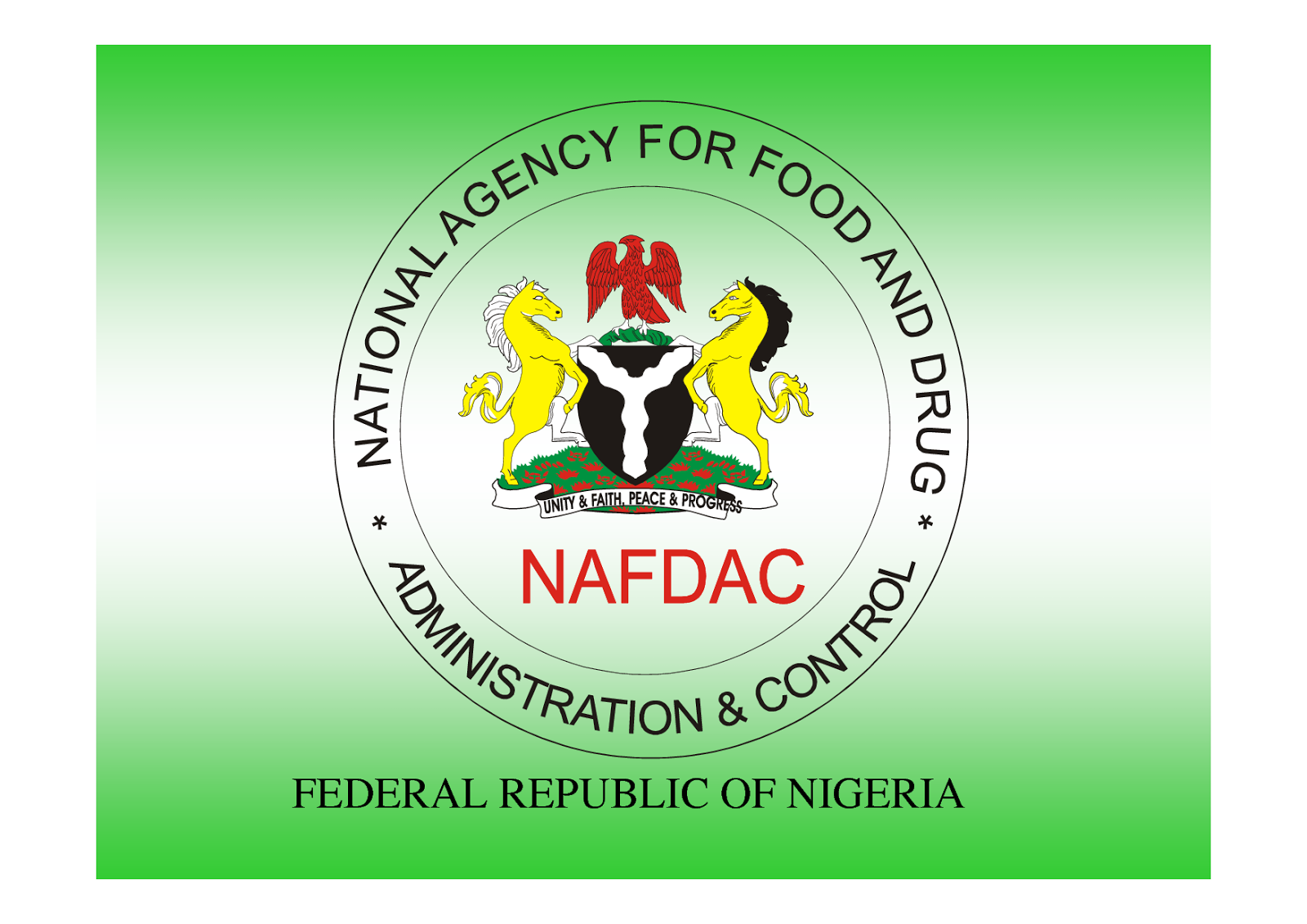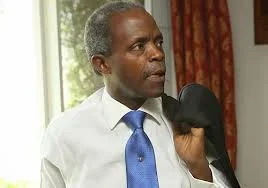Since the collapse of global oil prices at the international market which plunged the Nigerian economy into a 25 year low in 2016, there has been renewed focus on the agricultural sector as the country attempts to diversify its economy away from oil.
The shift was necessitated by the growing statistics of youth unemployment and the vast agricultural potentials that can drive a more sustainable economic development in Africa’s most populous nation.
With the current economic downturn the country is grappling with, there is consensus across board that there is no better time to leverage the potential of the agricultural sector than now, not just to pull out of recession, but also to diversify the economy and place it on the path of sustainable growth and development.
The ban on importation of goods which can be produced locally is a step the present administration has taken to key start the process of revamping the Nigerian agro-economy.
Audu Ogbeh, Minister of Agriculture and Rural Development while speaking at the inauguration of the technical working group of the country’s Agricultural Roadmap last year, emphasized that the decline in global oil prices had made it imperative for the country to diversify the economy, with agriculture as a major anchor. “We have to diversify and that diversification holds a lot of promise through agriculture,” Ogbeh said.
One of the factors bedeviling the industry is the lack of access to finance, a major impediment that prevents farmers from investing in basic inputs, such as quality seeds, fertilizers and small-scale irrigation facilities needed to raise productivity and generate sustainable income.
As a result, yields have failed to increase significantly, leading to pervasive hunger and poverty. Similarly, with little or no commercial financing and other incentives available to entrepreneurs seeking to build businesses that could boost food production, agricultural production has continued to remain at a subsistence level.
“Regarding agriculture, the opportunity is immense,” said Demola Sogunle, chief executive, Stanbic IBTC Bank PLC.
“Though much is required, and a collective inertia still remains, there are increasing signs of how agricultural transformation can change the country’s fortunes. The current economic situation, especially with strong government backing, makes agriculture an attractive prospect for the country,” Sogunle said.
Hitherto, successive governments and the Central Bank of Nigeria ( CBN ) have introduced financing initiatives to encourage commercial banks to finance agriculture at lower digit interest rate.
Some of such initiatives include the Nigeria Incentive-Based Risk Sharing Model for Agricultural Financing (NIRSAL), an initiative that provides finance for agro businesses at lower interest rate.
Another one is the Commercial Agriculture Credit Scheme (CACS), a CBN initiative that provides single digit financing through commercial banks at nine percent annually for commercial farmers. The Real Sector Support Fund (RSSF), also a CBN initiative which provides single digit financing to the real sector, including the agric sector, for periods of up to 15 years at an interest rate of nine percent per annum.
The Anchor Borrowers Programme, another CBN initiative, also provides financing at an interest rate of nine percent per annum. The scheme was recently established to specifically cater to smallholder farmers via an ‘anchor’ platform, through the provision of key inputs and creating markets and off-takers agreement for smallholder farmers registered under the platform.
The above initiatives are also supported by efforts from international multilateral agencies like the International Institute of Tropical Agriculture (IITA), German Technical Cooperation (GIZ), African Development Bank (AfDB) amongst others that have developed various initiatives towards providing technical support for primary production and other critical aspects of the agribusiness value chain.
It was largely in search of ideas and strategies to unlock the sector and stimulate growth of local production that lots of forums focused on agriculture have become commonplace. The ultimate goal is to unlock the country’s economic potential. Most of these forums usually reach the consensus that the requirements of Nigeria’s economic renaissance include the adoption of innovative strategies, appropriate policy directions and meticulous implementation.
Deploying the clout and resources of government to bear on such initiatives and projects must be prioritized while forging collaborations with the private sector to drive growth of the sector.
In addition, agribusiness should be broad-based, including mentoring the youth to see the attractive prospects in practicing agriculture. Agriculture should be practiced as a serious business, and have organize-private sector participation across the various value chains, which will enhance the drive towards restoring Nigeria’s place as a leading agricultural economy.
“The quest to unlock Nigeria’s agricultural sector, given its massive transformative potential, continues to gain interest and momentum from within Nigeria and abroad,” said Sogunle, who was earlier quoted.
He noted that developments in the agricultural sector can increase the volume and value of exports from Nigeria to other parts of the world especially if we focus on value-added and semi-processed product instead of raw produce.
To move forward, experts in the sector say Nigeria must look inward for local financing solutions. Several commercial banks are gradually becoming quite active in the agribusiness space, providing both financing and other support to the industry. For instance, a few years ago, Stanbic IBTC Bank PLC collaborated with Tata Africa Services and John Deere Financial, a division of United States-based John Deere, through which the bank is providing a range of financial services to customers of John Deere.
The Bank has also recently commenced some collaborative efforts with NIRSAL by providing finance towards supporting critical areas of the agri-business value chain.
With better governance and stable policies in place, Nigeria will reap the economic benefits of having a greater proportion of the population in the economically active sector. The large share of agriculture in Nigeria’s GDP, according to experts, suggests that a strong growth in agriculture is necessary to trigger overall economic revival and growth.





